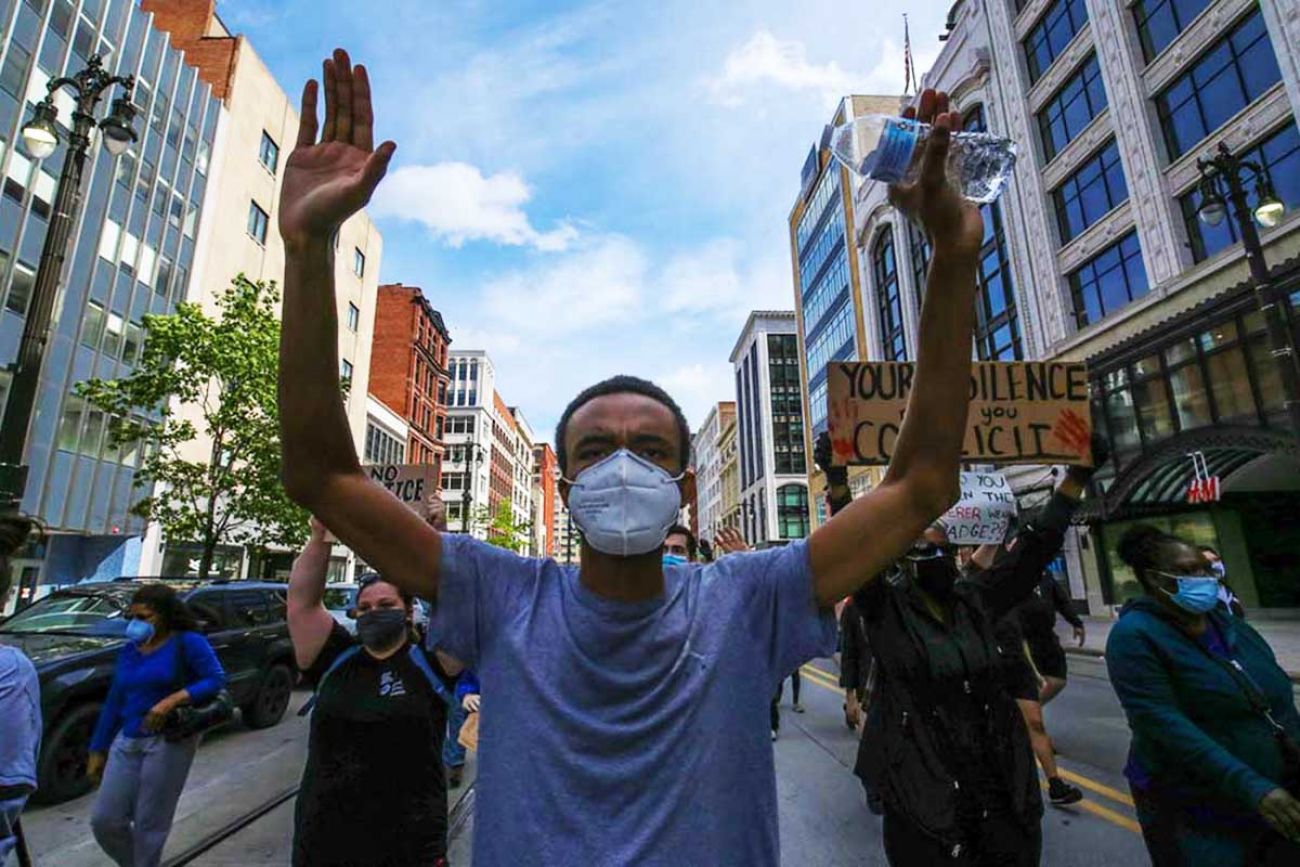Best of Bridge Michigan: Top social justice stories from 2020

This week, Bridge Michigan is revisiting some of its most impactful stories from 2020, a year like few others. Today, we examine our top articles about social justice.
Decades of frustration erupted into protests in cities big and small nationwide when George Floyd died May 25 after a police officer investigating a counterfeit bill kneeled on his knee for 8 minutes, 46 seconds.
- Best of Bridge Michigan: Top political stories of 2020
- Best of Bridge Michigan: Our top coronavirus stories of 2020
Video of the killing prompted protests the next day in Minneapolis that spread to more than 2,000 cities, including at least 15 cities in Michigan.
The killing prompted calls for police reform and systemic change that have yet to materialize. Below, we examine the top social justice stories of the year, while Thursday we revisit Bridge’s education and business coverage.
After Breonna Taylor decision, protests still outpace legislation in Michigan
The Legislature dawdled as activists filled the streets to protest the failure of a grand jury to indict police for the March 13 death of Breonna Taylor, a Louisville, Kentucky, woman shot in her own home. Police reform measures stalled amid growing national divisions over race and violence, prompting one Detroit protester to proclaim: ”It shows how people in the streets have to take things into their own hands in order to make the necessary reforms real.” — Ted Roelofs
White cops in Black communities underscore tension in Michigan protests
As the nation grappled with civil rights protests and demands for police reform, a Bridge investigation showed that police do not reflect the racial diversity in many of the Michigan communities they serve, creating a tension between white officers and people of color. — Mike Wilkinson
Protests continue in Detroit more than a week after George Floyd’s death
The protests prompted by George Floyd’s killing focused on not only police brutality, but also institutional racism and widening income inequality in Detroit and other cities. Reporter Louis Aguilar of reporting partner BridgeDetroit examined the roots of the protest and how they were led by a younger generation of activists.
Six years after Flint water switch, residents fear justice may never come
The devastation from Flint’s water crisis continues, even as state officials moved at year’s end to approve a $600 million settlement for the city whose water was poisoned. But residents are still waiting for the state to hold officials behind the money-saving switch accountable, as criminal investigations have been dropped or are languishing.
Defund police or reform? What a city in Oregon can teach Michigan
Long before the term “defund the police” became a movement in Michigan, a city in Oregon found ways to divert police from thousands of mental health calls that other professionals are better equipped to handle. In Eugene, instead of police, such calls often summon a white van with a team of two: a nurse or EMT and a first responder trained in behavioral health. In a program started three decades ago, these teams fielded nearly a fifth of calls to the Eugene Police Department. — Ted Roelofs
Michigan results official but harm done to Black voters may linger
President Donald Trump’s effort to overturn the election centered on unsubstantiated allegations of fraud in Detroit, an audacious effort to disenfranchise voters of color that evoked decades of voting abuses and whose harm could reverberate for years in lost trust and suspicion. — Madeline Halpert
Leelanau condemned the N-word, but the fight over racism had just begun
George Floyd’s death under the knee of a Minnesota police officer sparked a nationwide reckoning over racism. Then, a local public official’s use of a racial slur brought it to Leelanau County’s front door. Racial justice advocates in the mostly rural, disproportionately white region, where “no matter which back road you take to get to Traverse City, you’ll see a Confederate flag on the way” say they hope to parlay outrage over the incident into lasting change. — Kelly House
See what new members are saying about why they donated to Bridge Michigan:
- “In order for this information to be accurate and unbiased it must be underwritten by its readers, not by special interests.” - Larry S.
- “Not many other media sources report on the topics Bridge does.” - Susan B.
- “Your journalism is outstanding and rare these days.” - Mark S.
If you want to ensure the future of nonpartisan, nonprofit Michigan journalism, please become a member today. You, too, will be asked why you donated and maybe we'll feature your quote next time!

